Steadying Your Approach: Job Interview Tips for Low S Personalities
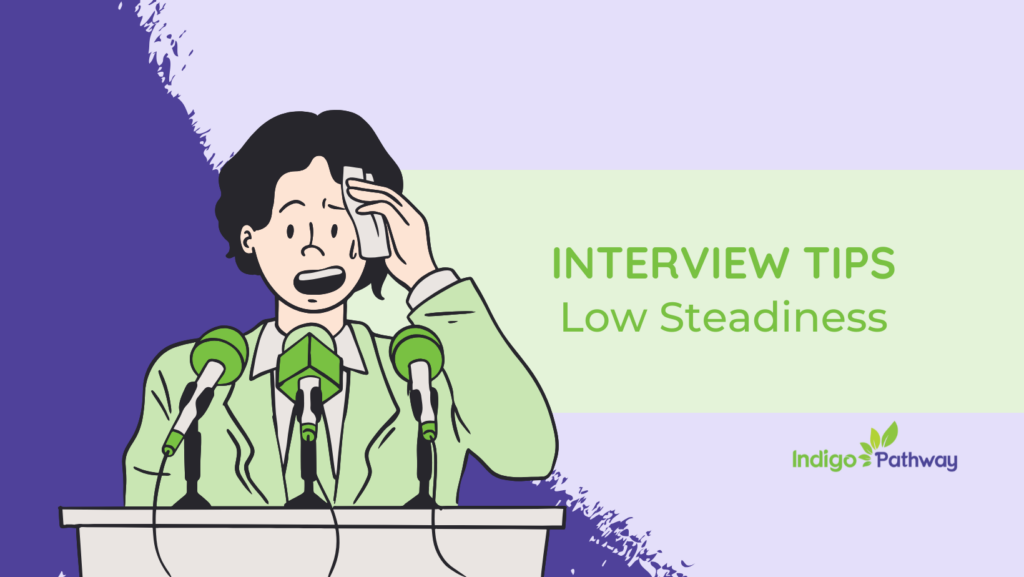
Preparing for a job interview by focusing on your strengths can give you a competitive edge and show the interviewer why you would be a good fit for the role. By understanding your unique qualities as someone who is Low Steadiness (Low S) on IndigoPathway’s DISC assessment and preparing to articulate them effectively, you can increase your confidence and improve your chances of landing the job.
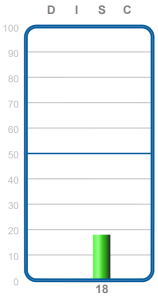
Someone who scores below 50 in the DISC Steadiness behavioral style (green bar on the DISC graph) is considered “low” in that style.
Here are a few interview tips for a low steadiness personality on the IndigoPathway DISC assessment:
Show your flexibility and adaptability.
Low steadiness individuals tend to be adaptable and open to change, so be prepared to discuss how you have handled change or uncertainty in the past and how you are open to taking on new challenges.
Show your ability to think on your feet.
Low steadiness individuals tend to be able to think quickly and react well to new and unexpected situations, so be prepared to give examples of how you have handled unexpected challenges in the past.
Show your ability to work well under pressure.
Low steadiness individuals tend to be able to handle pressure and thrive in fast-paced environments, so be prepared to give examples of how you have handled difficult or stressful situations in the past.
Show your willingness to take risks.
Low steadiness individuals tend to be open to taking risks and trying new things, so be prepared to discuss how you have handled risks or challenges in the past and how you are open to taking on new challenges in the future.
Make sure you stay on topic when you answer interview questions.
Low steadiness individuals tend to have an expansive mind that connects disparate topics. This is a great skill, and it’s important to stay on topic when answering questions during an interview.
Show your ability to think strategically.
Low steadiness individuals tend to be visionary, so be prepared to give examples of how you have thought strategically in the past, and how you can apply that ability to the role you are interviewing for.


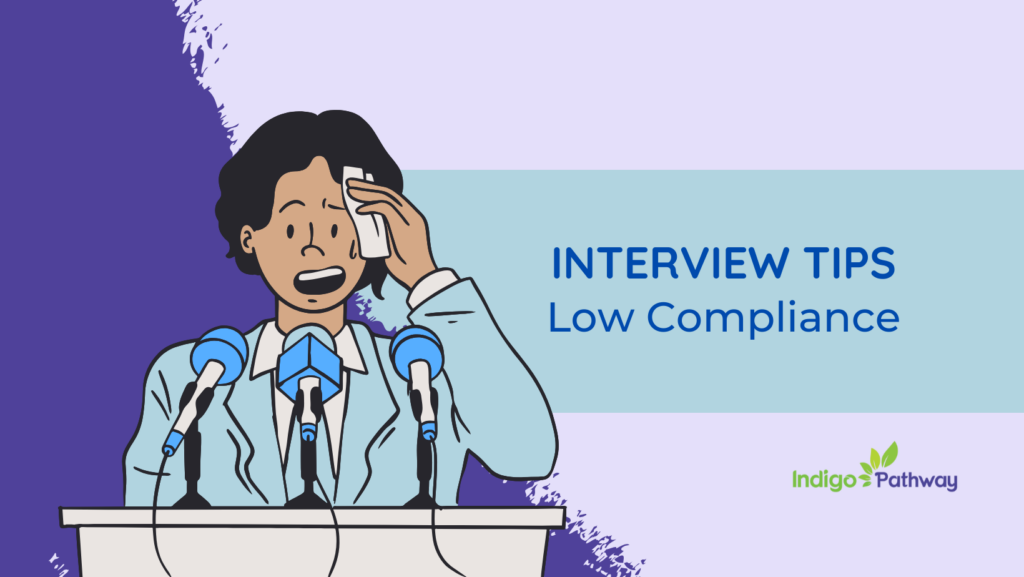
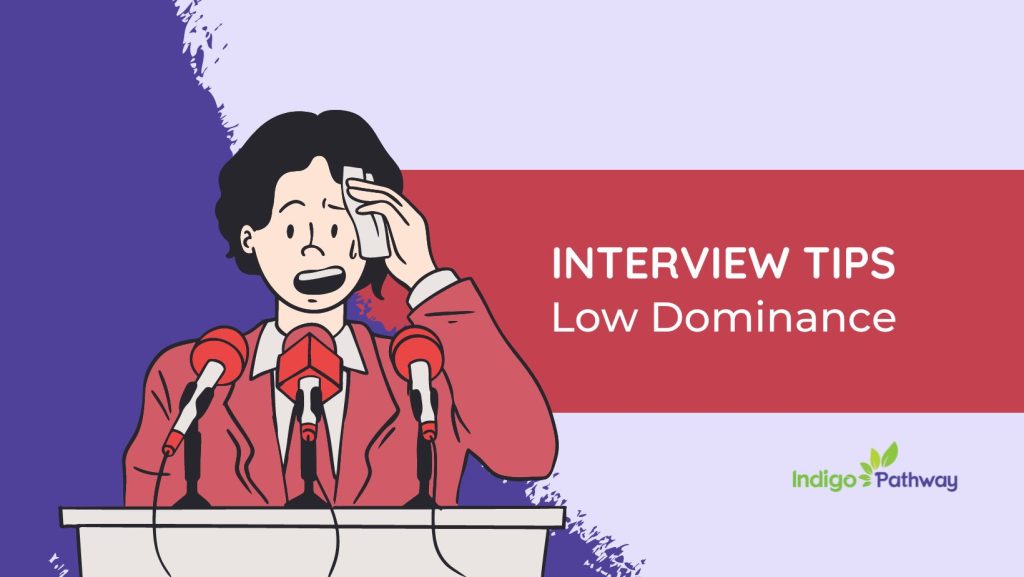
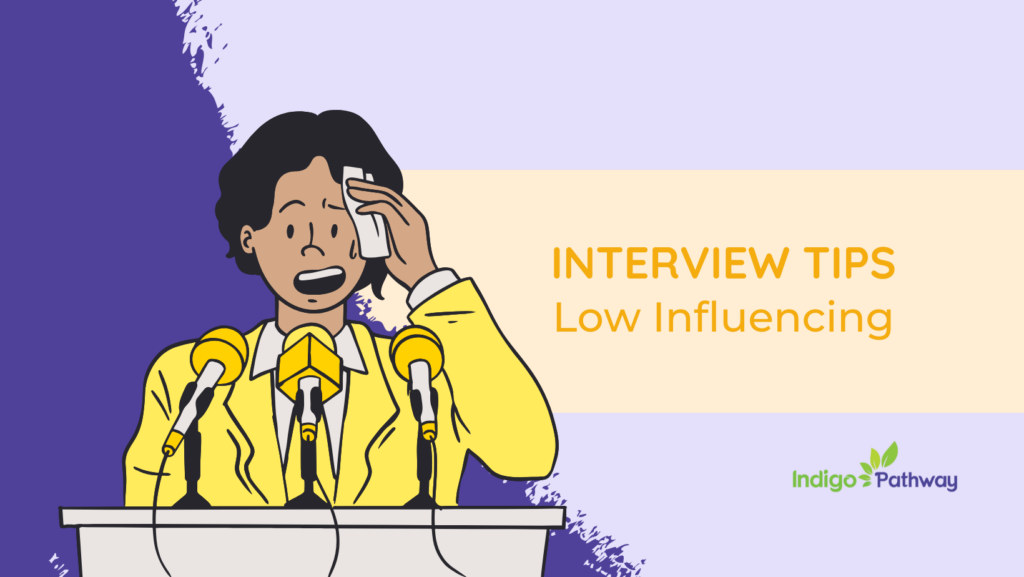
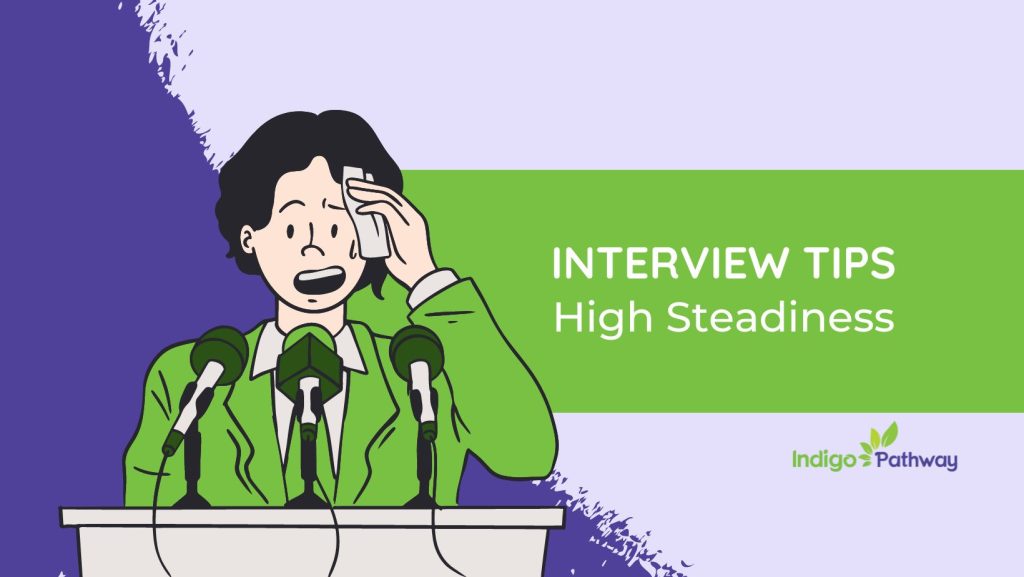
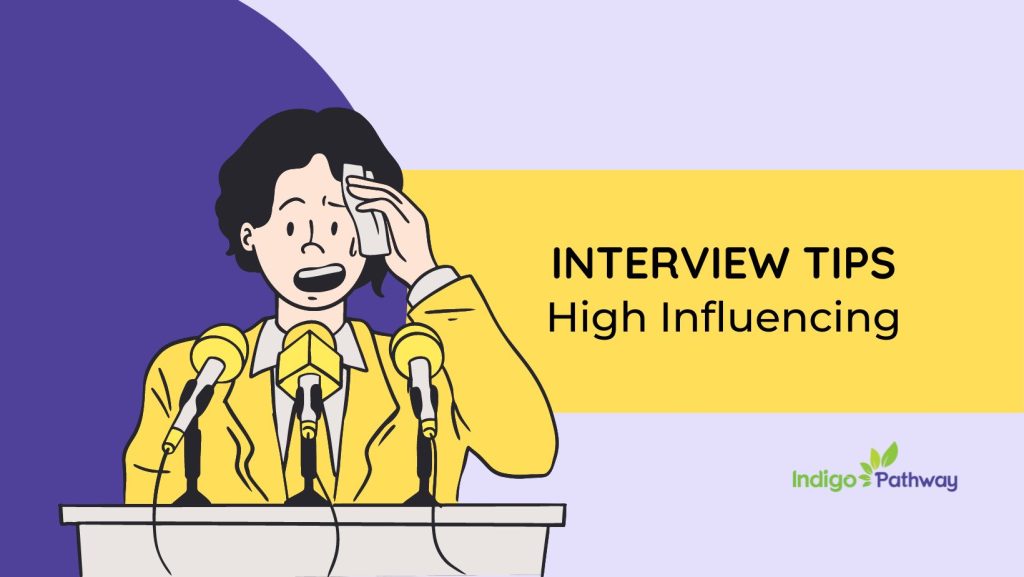
Responses